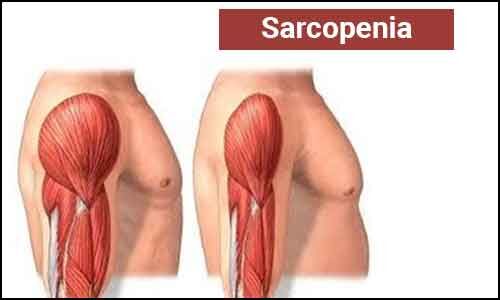- Home
- Medical news & Guidelines
- Anesthesiology
- Cardiology and CTVS
- Critical Care
- Dentistry
- Dermatology
- Diabetes and Endocrinology
- ENT
- Gastroenterology
- Medicine
- Nephrology
- Neurology
- Obstretics-Gynaecology
- Oncology
- Ophthalmology
- Orthopaedics
- Pediatrics-Neonatology
- Psychiatry
- Pulmonology
- Radiology
- Surgery
- Urology
- Laboratory Medicine
- Diet
- Nursing
- Paramedical
- Physiotherapy
- Health news
- Fact Check
- Bone Health Fact Check
- Brain Health Fact Check
- Cancer Related Fact Check
- Child Care Fact Check
- Dental and oral health fact check
- Diabetes and metabolic health fact check
- Diet and Nutrition Fact Check
- Eye and ENT Care Fact Check
- Fitness fact check
- Gut health fact check
- Heart health fact check
- Kidney health fact check
- Medical education fact check
- Men's health fact check
- Respiratory fact check
- Skin and hair care fact check
- Vaccine and Immunization fact check
- Women's health fact check
- AYUSH
- State News
- Andaman and Nicobar Islands
- Andhra Pradesh
- Arunachal Pradesh
- Assam
- Bihar
- Chandigarh
- Chattisgarh
- Dadra and Nagar Haveli
- Daman and Diu
- Delhi
- Goa
- Gujarat
- Haryana
- Himachal Pradesh
- Jammu & Kashmir
- Jharkhand
- Karnataka
- Kerala
- Ladakh
- Lakshadweep
- Madhya Pradesh
- Maharashtra
- Manipur
- Meghalaya
- Mizoram
- Nagaland
- Odisha
- Puducherry
- Punjab
- Rajasthan
- Sikkim
- Tamil Nadu
- Telangana
- Tripura
- Uttar Pradesh
- Uttrakhand
- West Bengal
- Medical Education
- Industry
Low muscle strength strong prognostic factor than muscle mass in GI & HBP cancers

A new study has revealed that low muscle strength was a stronger prognostic factor than low muscle mass in patients with gastrointestinal and hepatobiliary–pancreatic cancer. The study was published in the journal 'Nutrition.'
In patients with gastrointestinal (GI) and hepatobiliary-pancreatic (HBP) cancers, Sarcopenia has been reported as a prognostic risk factor. Hence, researchers conducted a study to investigate whether the loss of muscle mass or the loss of strength is a stronger prognostic factor in GI & HBP cancers. Based on the survival outcome in patients with GI and HBP cancers, they explored the cutoff values of skeletal muscle mass index (SMI) and handgrip strength (HGS).
A retrospective analysis of 480 elderly patients with primary GI and HBP cancers who underwent their first resection surgery was done. All the participants were divided into four groups of appropriate SMI and HGS, low SMI alone, low HGS alone, and low SMI and HGS. Bioelectrical impedance analysis was used to derive the Low SMI and low HGS was defined according to the Asian Working Group for Sarcopenia 2019 criteria.
Results:
- Low SMI was a significant risk factor for mortality only in men, while the low HGS was significant in both sexes as per the Multivariate analysis.
- Multivariate analysis of the four groups revealed that the low HGS alone and low SMI and HGS showed a significantly higher hazard ratio than appropriate SMI and HGS in both sexes.
- SMI 7.21 kg/m2 and HGS 28 kg were obtained as cutoff values based on the 3-year survival outcomes in men.
Thus, the researchers concluded from the study that low muscle strength was a stronger prognostic factor than low muscle mass. Hence, they also suggested that it is necessary to measure muscle strength in all patients.
To read the full article, click here: https://doi.org/10.1016/j.nut.2022.111826
Nasu N, Yasui-Yamada S, Kagiya N, et al. Muscle strength is a stronger prognostic factor than muscle mass in patients with gastrointestinal and hepatobiliary-pancreatic cancers. Nutrition. Published online August 2022:111826.
BDS, MDS
Dr.Niharika Harsha B (BDS,MDS) completed her BDS from Govt Dental College, Hyderabad and MDS from Dr.NTR University of health sciences(Now Kaloji Rao University). She has 4 years of private dental practice and worked for 2 years as Consultant Oral Radiologist at a Dental Imaging Centre in Hyderabad. She worked as Research Assistant and scientific writer in the development of Oral Anti cancer screening device with her seniors. She has a deep intriguing wish in writing highly engaging, captivating and informative medical content for a wider audience. She can be contacted at editorial@medicaldialogues.in.
Dr Kamal Kant Kohli-MBBS, DTCD- a chest specialist with more than 30 years of practice and a flair for writing clinical articles, Dr Kamal Kant Kohli joined Medical Dialogues as a Chief Editor of Medical News. Besides writing articles, as an editor, he proofreads and verifies all the medical content published on Medical Dialogues including those coming from journals, studies,medical conferences,guidelines etc. Email: drkohli@medicaldialogues.in. Contact no. 011-43720751


